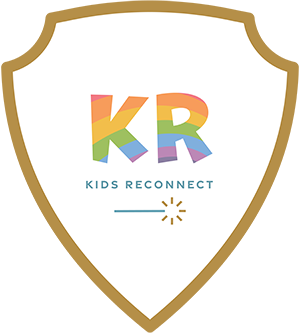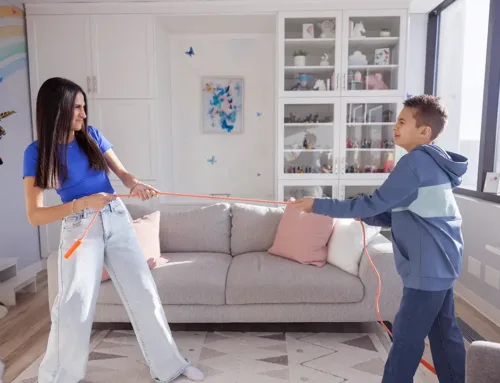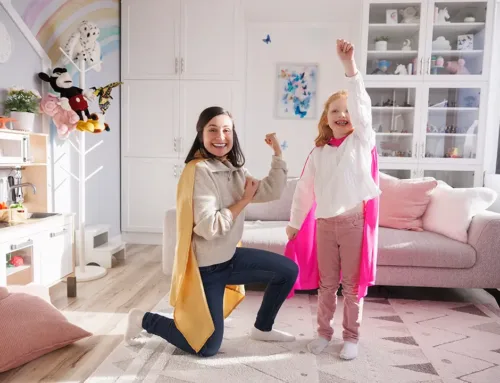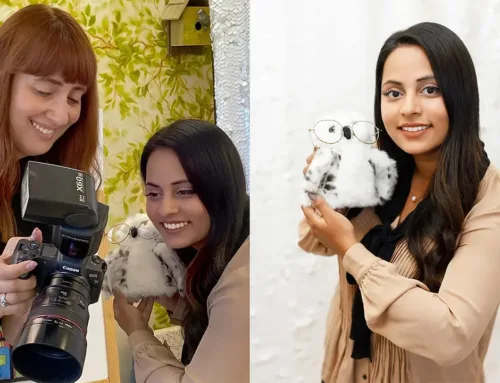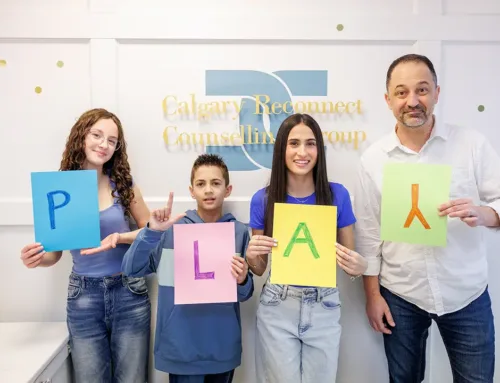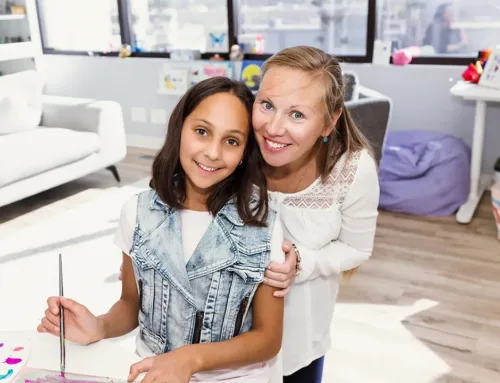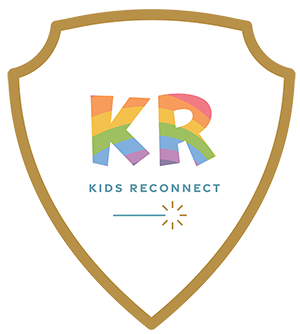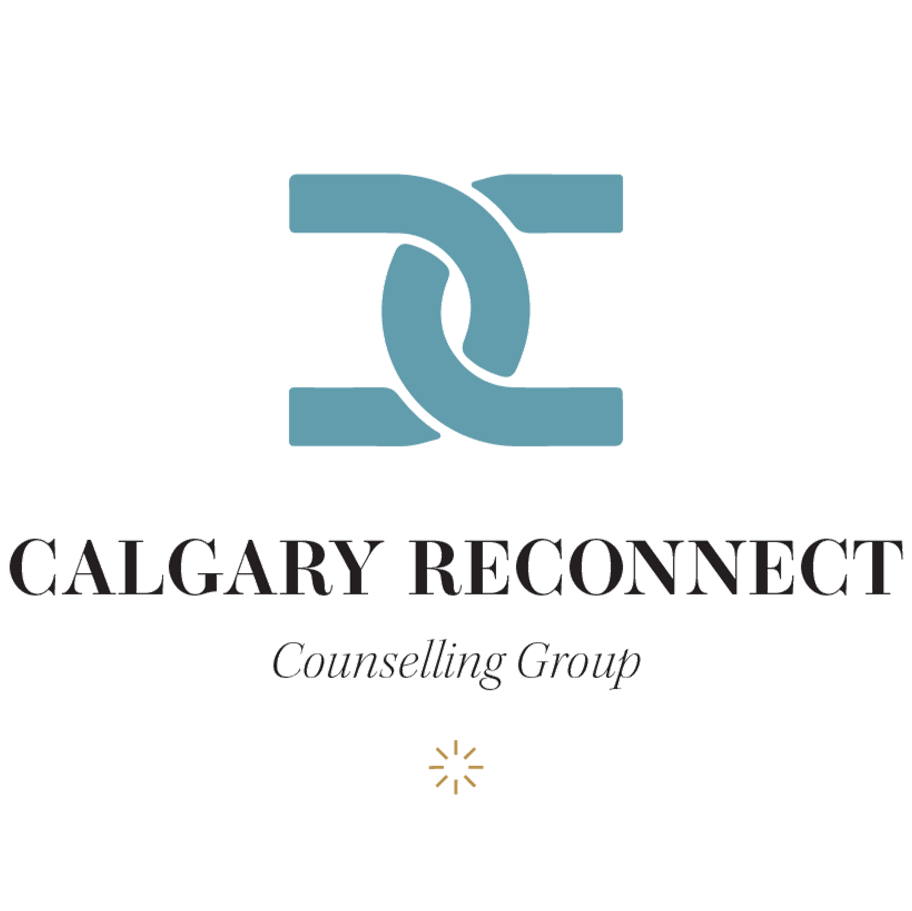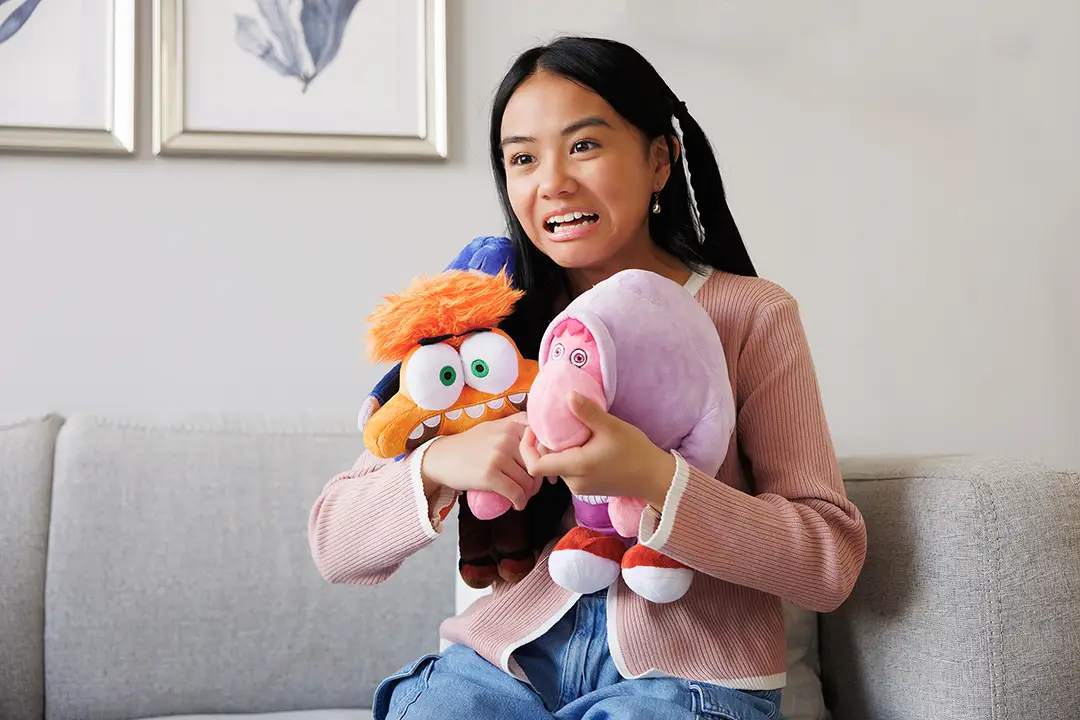
“OW, Mommy! I hate school.
I never want to go back to school, EVER!”
Your child comes home from the playground visibly upset, or staggering with a scraped knee after falling off their bike. As a parent, you warmly support them and take care of their immediate needs, but a couple of days later, you can see they are still not doing well.
When your kiddo is struggling beyond the regular day-to-day challenges, and you think they might need specialized support, should you take them to see a child psychologist or a physiotherapist — or both? Where to start?
A blog post collaboration by Kids Reconnect and Calgary Youth Physiotherapy.
It’s often difficult for parents to pinpoint if their kiddo’s struggles are physical or emotional
That’s because child development doesn’t happen in neat, mutually exclusive little boxes labeled “PHYSICAL” and “PSYCHOLOGICAL” or “MIND”, “BODY”, and “HEART”.
A child who struggles with balance might also struggle with self-esteem. A child who avoids messy play might also be feeling overwhelmed inside. If you ask a young child: “Where does it hurt?” they might not have the verbal acumen to explain what they are experiencing, and the struggle might be physical, emotional, or a combination of both.
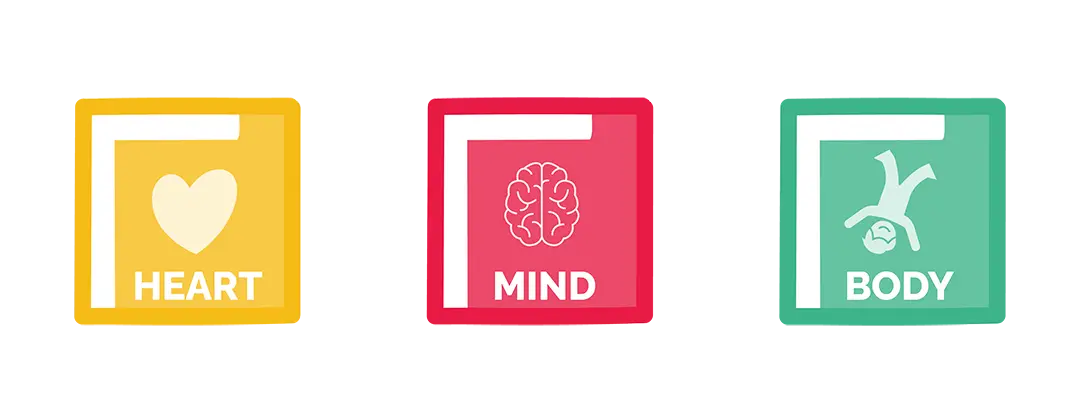
That’s where collaborative care that hones in on healing kids’ minds, bodies, and hearts comes in.
Collaborative care supports a child’s whole world in its beautiful complexity
In a collaborative care model, physiotherapists and child psychologists work together to support the whole child — their body and their emotions, in all their extraordinary, beautiful complexity — to heal, grow, and thrive.
Children thrive when families feel supported and communities come together. Our teams of child psychologists, child therapists, physiotherapists, and occupational therapists at Kids Reconnect and Calgary Youth Physiotherapy see this every day. Whether through physical development, emotional well-being, or relational growth, raising a child is a path that no one should walk alone. That’s why we are here, offering collaborative care, and we are part of your community — your Calgary.
We believe deeply in the age-old wisdom that “it takes a village to raise a child.” In today’s fast-paced world, that village might look different than it did decades ago — but the need for connection is still there. Whether a child is learning to walk again after a physical injury or learning to talk about their feelings for the first time, they deserve a community that sees them, believes in them, and supports them.
When to see a physiotherapist or occupational therapist?
- Physiotherapists (PTs) work with the physical body—helping children build strength, coordination, skills and confidence in movement. Physiotherapists also treat painful conditions and injuries, and teach children and their families how to minimize the risk of painful conditions and injuries from occurring. At CYP, our focus is to “keep kids in the game”, whatever their game may be!
- Occupational Therapists (OTs) work closely to help individuals participate in the activities and tasks of everyday life with a greater sense of ease, including but not limited to dressing, eating, reading, writing, playing, bathing, and toileting. OTs look at the physical, social, developmental, and emotional connections that may inhibit someone’s ability to perform daily tasks.
Common signs your child may benefit from physiotherapy and/or occupational therapy
- Delays in crawling, walking, or coordination
- Trouble with balance or clumsiness
- Difficulty with handwriting or fine motor skills
- Equipment needs
- Feeding difficulties
- Frequent falls or poor posture
- Avoiding physical play or sports
- Sudden changes in their psychomotor skills
- Pain in joints and muscles, with or without specific injury
- Self-esteem challenges related to postural issues or physical ability
- Issues with toileting and incontinence
- Parental concerns regarding the child’s posture, gait, or movement patterns
When to see a child psychologist or child therapist?
Child psychologists and child therapists focus on emotions, behaviour, and mental health. They help kids understand their feelings, cope with big emotions, build self-confidence, and grow in their ability to relate, collaborate, grow, and thrive among the kids and adults in their world.
Common signs your child may benefit from seeing a child psychologist or child therapist:
- Frequent meltdowns or shutdowns
- Anxiety around trying new things
- Refusing to go to school or participate in activities
- Sensory sensitivities (loud sounds, textures, clothing)
- Low self-esteem, perfectionism, or withdrawal
- Sudden, unexpected changes in school performance or behaviour
- Struggles with changes in the family (divorce, separation, sibling rivalry, blended families, moving)
When might your child need both a physiotherapist and a psychologist?
Sometimes (more often than parents might anticipate) the challenge for a child is both physical and emotional. For example:
- A child who refuses to ride a bike might struggle with balance, peer support, and fear of failure.
- A child with ongoing bedwetting might need both pelvic floor support and help managing anxiety or stress.
- A child who avoids gym class might be overwhelmed by movement and feel self-conscious about being “different.”
- A child who experienced a car accident might need support for their physical pain and injuries (like whiplash), while also needing psychological support with their fears and worries while being in a car.
Child psychologists and physical therapists often work together to support kids
If you are still not sure about the type of support your child might need with their particular struggles, here are more examples of how child psychologists and physical therapists work together.
1. Delayed motor milestones (e.g., crawling, walking, fine motor skills)
- Physiotherapist: Supports gross motor skill development, posture, muscle tone, motor memory, coordination, and parental education.
- Occupational Therapist: Supports fine motor skills, sensory regulation, independence with dressing, eating, self-care, school readiness, play skills, and supports feeding challenges.
- Child Psychologist: Assesses and supports co-occurring developmental delays (e.g., autism, ADHD, sensory processing) and other challenges such as low frustration tolerance or anxiety around trying new skills.
Example
A 4-year-old refuses to ride a bike, struggles with balance, and becomes emotionally upset when challenged — both physiotherapist and psychologist may be part of the treatment team.
2. Chronic pain or tension in the body
- Physiotherapist: Assesses the cause of pain (repetitive strain, autoimmune disorder, external factors such as shoe wear, etc), and treats the muscle imbalances, postural issues, compensatory movements, with the aim of pain free return to activity.
- Child Psychologist: Supports a child to heal somatic symptoms linked to stress, anxiety, or trauma.
Example
A 10-year-old with frequent headaches or stomach aches associated with going to school. First a PT investigates to rule out physical causes, then a child psychologist explores the emotional load and the family dynamics, and relates this to a bullying incident. Using EMDR (Eye Movement Desensitization and Reprocessing) Therapy, the child psychologist can help a child to reprocess the traumatic memory, reducing the anxiety linked to it — and with it, the child’s physical symptoms improve too.
3. ADHD and body regulation
- Physiotherapist: May help with motor coordination and body awareness (especially with co-occurring dyspraxia). Our OTs will assist with the understanding of sensory issues, provide sensory regulation strategies, and help the family to implement strategies for home and school.
- Child Psychologist: Offers core support for attention, impulsivity, emotional regulation, and executive function.
Example
A 7-year-old is acting fidgety, trips often, and gets frustrated during gym — both motor planning and emotional skills may need support.
We love supporting Calgary kids and parents — hearts, bodies, and minds — in collaborative ways
At Kids Reconnect, we see children, parents, and families heal, grow and thrive when they feel emotionally supported. Our team of child therapists specialize in working with children, parents, and families. Meeting kids at their level, we empower them to overcome challenges using specialized approaches such as Play Therapy, Synergetic Play Therapy, Sand Tray Therapy, Art Therapy, Narrative Therapy, AutPlay Therapy, Safe & Sound Protocol, Internal Family Systems, and EMDR (Eye Movement Desensitization and Reprocessing) therapy.
At Calgary Youth Physiotherapy, we provide the child and their family with a team of therapists, including physical therapists, occupational therapists, pelvic health therapists, and massage therapists who work together to best address each child’s needs.
Whether the issue is pain, gross or fine motor skill delay, toileting, altered gait, feeding problems, or infant developmental conditions, we are here to help!
Together, our child psychology and physiotherapy clinics encourage parents to:
- Reach out when they feel stuck, worried, or burned out
- Build a circle of care: professionals, friends, family, and trusted community supports
By coming together as child psychologists, child therapists, physiotherapists, occupational therapists, parents, educators, and caregivers, we are creating a safe, empowering environment where children can grow and thrive, strong in body, mind, and heart.
